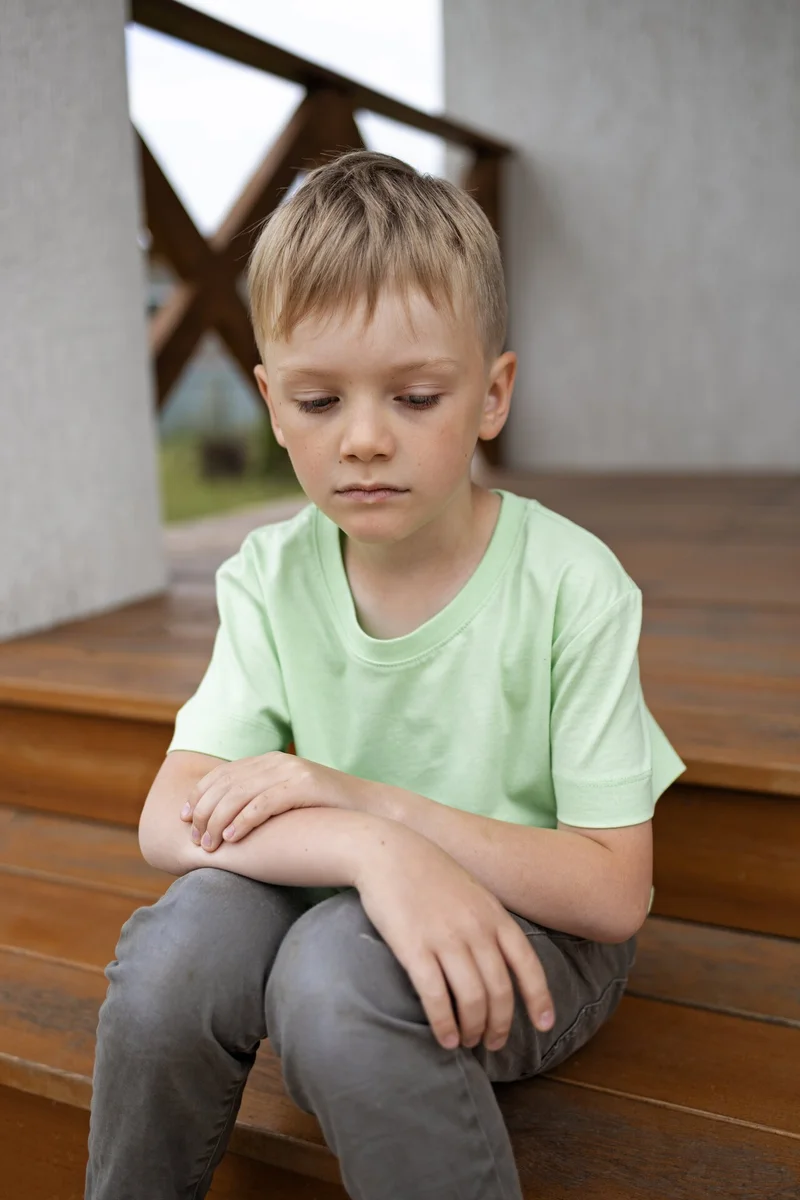Child's anger: how to react correctly and not suppress emotions

Photo source: freepik.com
When a child expresses anger, parents often don’t know how to respond appropriately. We learned from psychologists why it’s important not to suppress any expression of emotion in children, and what strategies to use for a constructive approach to children’s anger.
We talked to experts about a topic that worries many parents – how to properly respond to a child’s anger. Psychologists explained why it is important not to suppress children’s emotions and suggested strategies for a constructive approach to children’s anger.
Suppressing anger in children is a topic that raises many questions among parents. We talked to experts to find out why it is important not to suppress a child’s anger too often. Psychologists Marina Galova, Oksana Vas’ko and Maria Makukhina explain how to properly respond to a child’s anger and why it is necessary to allow them to express their emotions.
Anger as a way of experiencing
Marina Galova, a psychologist and Gestalt therapist, notes that anger in a child arises in response to unmet needs or obstacles that prevent them from being satisfied. Parents often try to suppress anger, not taking into account that through it the child is trying to achieve something important. Regularly suppressing a child's anger can lead to the child becoming accustomed to ignoring their feelings and expressing only socially acceptable emotions such as joy and admiration, while keeping the discontent inside. This can lead to the child becoming convenient for others, but not for themselves.
Sad boy. Photo source: freepik.com
The dangers of suppressing anger
Oksana Vasko, a practicing psychologist, business coach, and teacher at the Imaton Institute of Practical Psychology, emphasizes that anger, like any other emotion, should not be suppressed at all. Suppressed emotions remain inside us and can cause harm in the future. For example, a child may begin to act out their anger on someone weaker, such as pets, or decide that anger is bad and should not be expressed. In the future, this may affect their career and personal life, since anger helps us understand that something is wrong: someone is violating our boundaries, what we want does not coincide with what is real, or we are in a toxic situation.
Also, suppressed anger can lead to psychosomatic illnesses or autoaggression, such as self-harm. Children can cut themselves, stab themselves, tear their hair out, bang their heads against the wall, overeat, or, conversely, refuse food.
Maria Makukhina, a clinical psychologist at the Fantasy Children's Clinic, adds that suppressed emotions lead to chronic stress, which in turn causes functional diseases such as tension headaches and gastrointestinal disorders. Suppressed anger can also lead to autoaggression – self-harming behavior.
"First of all, all emotions have a right to exist: there are no bad or good, right or wrong ones – all emotions are needed for something. Anger helps to understand that personal boundaries have been violated and to protect them. Therefore, anger, like other emotions, should not be suppressed too often – it must find an outlet," she explains.
How to help a child cope with anger?
1. Recognize emotions.
Oksana Vas'ko recommends starting with recognizing the child's emotions. This can reduce the intensity of anger, and gives an example:
The best thing to do is to tell the child: "I see that you are angry now." This recognition of the emotion alone neutralizes its intensity. Then it would be good for parents to decipher why the child is angry and console him. For example: "I see that you are very angry that Pasha took your toy without asking. I understand that this is very unpleasant. Let's tell Pasha or his mother that next time he asks before taking your things."
The psychologist adds that in this way parents help their child cope with anger, teach them to defend their boundaries in an environmentally friendly manner and understand cause-and-effect relationships.
2. Alternative methods of coping with emotions.
Marina Galova advises showing the child positive models of responding to unpleasant situations. These can be thematic books, observation of adults who adequately respond to difficulties, or joint analysis of situations in which the child showed anger, with a search for other ways to cope with difficulties.
Mom communicates with her daughter. Photo source: freepik.com
Maria Makukhina suggests teaching a child environmentally friendly and safe ways to express anger: scream, hit a pillow, tear paper or throw pieces of ice on the ground. The method should be acceptable in the family and appropriate to the specific situation. For example, if a child gets angry at school because of a bad grade, there is no way to hit a pillow or scream loudly - this means that other methods are needed, and it is important to find them.
3. Level of anger intensity.
Maria Makukhina also emphasizes the importance of teaching a child to recognize the intensity of his anger on a scale from mild irritation to rage:
"After all, the higher the temperature on this emotional "thermometer", the more difficult it is to cope with anger. And if you "catch" it at an early stage, it is much easier to express it ecologically and safely for others."
A happy family. Photo source: freepik.com
4. Monitoring physical and mental health.
Oksana Vas'ko recommends monitoring the child's diet, sleep and rest schedule:
"Very often children get angry and capricious because they spend too much time on gadgets (gadgets literally suck the energy out of the child due to pictures and videos), sleep poorly, eat a lot of sweets and drink soda. All this directly affects the state of the body: both physical and mental."
Every reaction of the child is a way to express their feelings and experiences. Instead of suppressing anger, it is important to carefully consider what exactly the child is trying to convey. This will help you understand him better and find ways to support him in difficult situations. Parents who are able to recognize and respect their children's emotions help them grow up emotionally healthy and self-sufficient individuals who are able to cope with difficulties and adequately express their feelings.